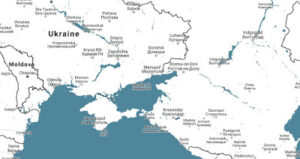The man was jailed after his ex-spouse charged him with choking and trying to rape her.
The story she and her attorney told the judges in the original 2015 trial was that her ex broke into her apartment, threw her on her bed, choked her, threatened to kill her, and attempted to rape her multiple times, and they presented as evidence injuries to her neck. The man was charged and sent to prison.
19 days later, the woman came forward with the truth: that she made it up.
The 34-year-old Ontario woman was then charged with mischief for the lie (mischief in Canada has maximum punishment of 14 years). Her lawyer suggested a punishment of a conditional sentence, citing that she had changed since she made the claim, that she had recently completed anger management, and that she was making progress in drug recovery. They also presented a letter to the court written by her daughter asking that her mother not be sent to jail and an unsigned letter from her ex asking the same.
However, because the woman had a previous criminal record and had been in jail several times, the court said, it gave her jail time: 60 days.
The court justice said of the sentence, “When you go to a police officer and pretend to be a victim, the police officer begins investigating the case, but that takes that officer away from investigating real cases. … (Your story) was calculated. You inflicted injuries to your neck. You said they were caused by someone. You gave a sworn statement to police. You knew (the ex-spouse) was arrested and in custody …
“One day went by. Two days went by. A week went by. Nineteen days went by knowing an innocent man was in jail.”
 Saudi Arabia and other neighbors of Qatar have accused Qatar of supporting terrorism and embracing Iran, and have cut it off.
Saudi Arabia and other neighbors of Qatar have accused Qatar of supporting terrorism and embracing Iran, and have cut it off.